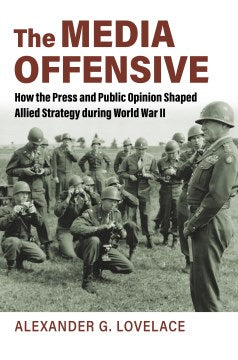
The Media Offensive
Publisher,Univ Pr of Kansas
Publication Date,
Format, Paperback
Weight, 521.63 g
No. of Pages, 354
World War II was a media war. Franklin Roosevelt used the press to a great extent, of course, but as the war progressed, the media also came to influence commanders' decisions on the battlefield. Rescuing Douglas MacArthur from the Philippines in deference to public opinion forced the Allies to divide the Pacific War between two competing theaters. Omar Bradley's concern over American public opinion convinced Dwight D. Eisenhower to include Americans in the final assault against Axis forces in Tunisia. George S. Patton raced across Sicily to gain media attention and British respect. Mark Clark's hunger for publicity and the glory of capturing Rome allowed an entire German army to escape destruction. Negative media pressure and the fear of V-1 bombs damaging British morale provided the impetus for the breakout of Normandy and the unsuccessful attempt to liberate the Netherlands in the fall of 1944. British General Bernard Montgomery's remarks to the press during the Battle of the Bulge almost caused him to lose his command and created tremendous ill feelings among the Allies. Soon afterward, Eisenhower was forced to hold the dangerously exposed city of Strasbourg because of French public opinion. By V-E Day, even Eisenhower was attempting to get more publicity for American, as opposed to Allied, units. Alexander Lovelace demonstrates that the US military repeatedly discovered that the best effects resulted from accurate news stories. Truthful news reporting-defined as news reporting that accurately depicts the events it describes-could not be created by the military or even the media, but could only emerge by a free press searching for it--

